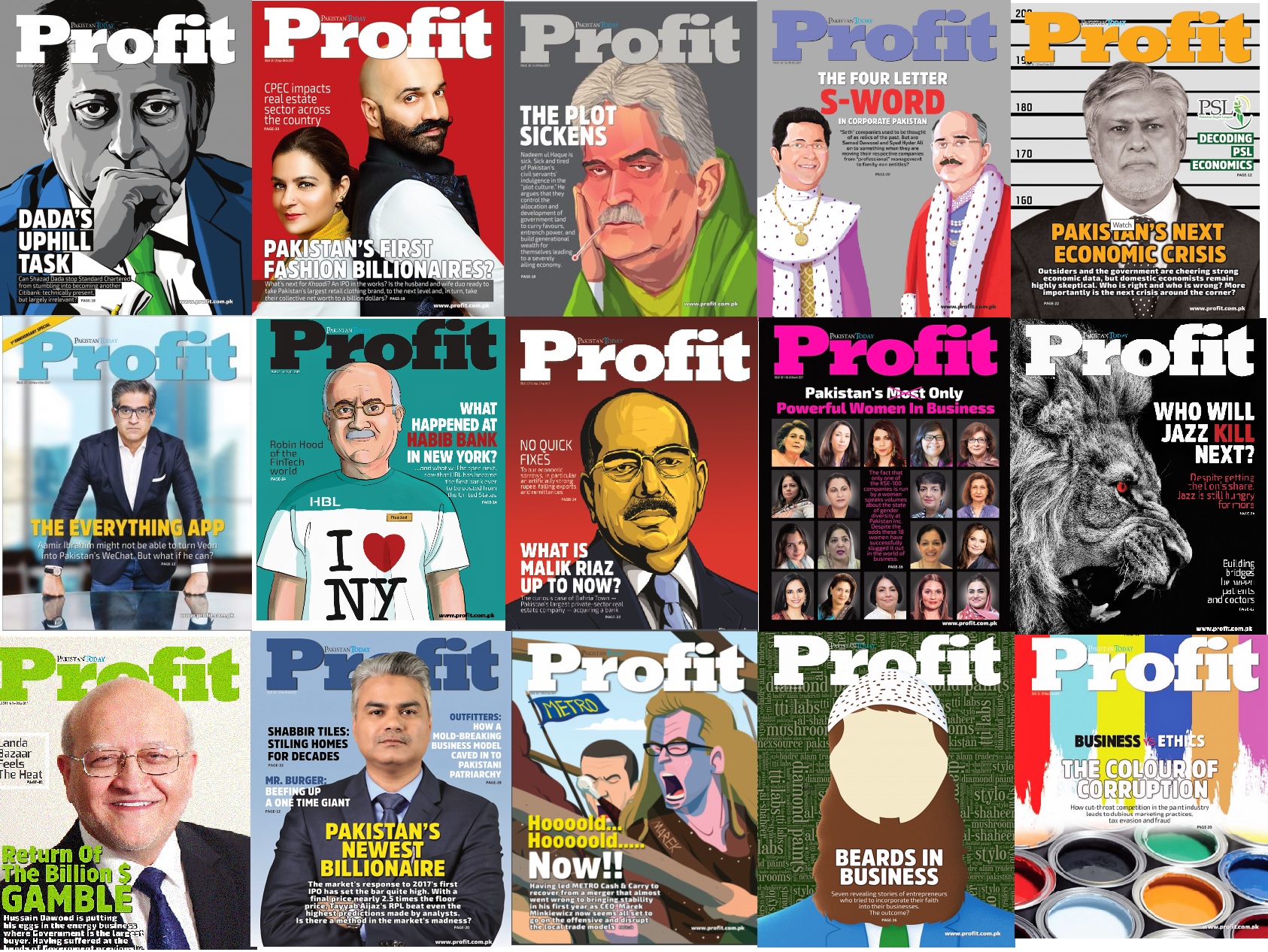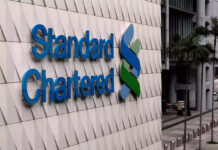20. The great land theft
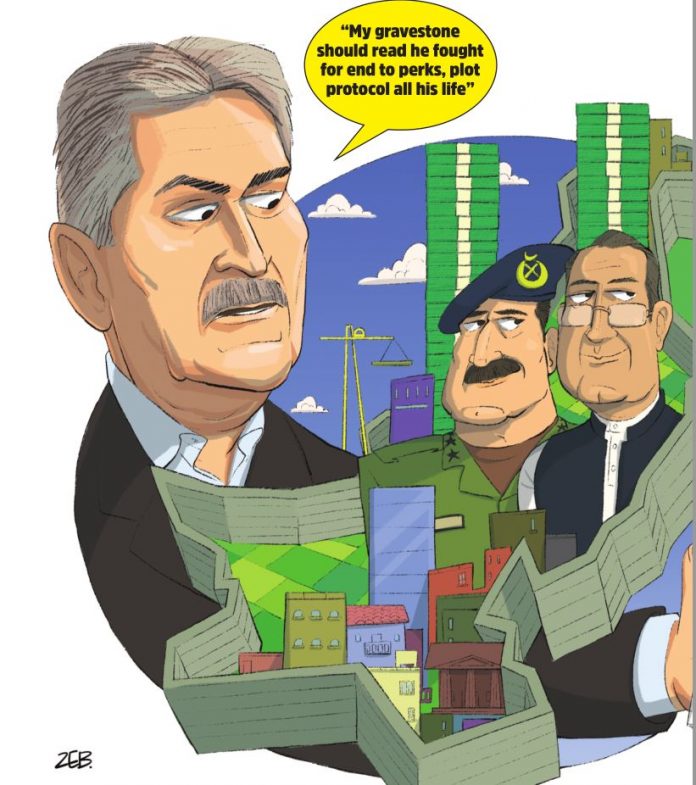
By Farooq Tirmizi
If there is a single place that can be thought of as the foremost cathedral to free-market capitalism, it is not the New York Stock Exchange, nor any other place in Lower Manhattan, or the City of London; it is Saieh Hall at the University of Chicago in the historic Hyde Park neighbourhood on the south side of Chicago. Fitting, perhaps, then that the building was originally built as a theological seminary and has a decidedly religious architecture. In this building is housed the University of Chicago’s economics department, which has produced or otherwise been affiliated with 29 Nobel laureates in economics – more than any other institution in the world.
It is here that Nadeem ul Haque, former head of the Planning Commission and author of Looking Back: How Pakistan Became an Asian Tiger by 2050, got his training as an economist. It is not possible to understand his work – arguably one of the very few forward-looking visions for economic growth for Pakistan put out in recent years by a trained economist – without understanding where he comes from.
Say the name Nadeem ul Haque in front of any bureaucrat or journalist in Islamabad (or really anywhere else in Pakistan), and you will get the same look. That smirk, coupled with a rolling of the eyes. A knowing look of the cognoscenti. “Oh, that doddering fool. Yes, of course we know of him. He has no idea what he is talking about. All he has are theories from America. We know how the real world works, especially in Pakistan.” And in some ways, they are right.
19. Chiniotis mean business!

By Agha Akbar
Mushtaq Ahmad Yousufi, the greatest-ever Urdu language satirist, in one of his trademark quips said that Muslims of undivided India thrived only in one business – skins and leather, and that too of the unfortunate animals they had earlier consumed.
Witticism apart, there is more than a grain of truth in this adage. Being a top Pakistani banker himself, and knowing the commercial qualities of the Chinioti businessmen who had by then started making their presence felt among the country’s business fraternity, Yousufi might actually have been alluding to them.
The other principal mercantile community in India, the Hindus, detested dealing in leather owing to their religious beliefs. That creed provided not merely an opening for Muslims but the great break for a near monopoly in the tannery business.
18. The cluelessness of Standard Chartered’s Pakistan strategy
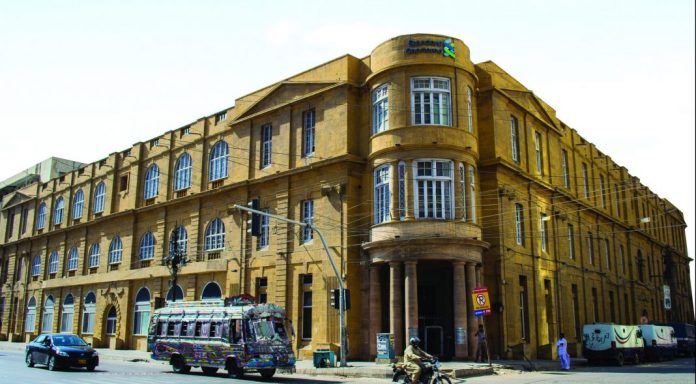
By: Farooq Tirmizi & Farooq Baloch
Stand outside the branch of Standard Chartered Bank Pakistan on Karachi’s historic McLeod Road, and it is difficult to escape a sense of history. The weathered façade of the building – with its colonial architecture – practically screams out the fact that this bank has been doing business in this city since before the invention of the typewriter.
But walk inside (or download their app on your smartphone) and you will find the most sophisticated banking technology available in the country, allowing a customer to complete virtually all routine transactions without the need for human interaction.
By rights, that combination of a storied history and modern technological capabilities should make Standard Chartered one of the most important financial institutions in the country, and certainly one poised for robust growth in the coming decades. Standard Chartered’s leadership certainly likes promoting that image, with both CEO Bill Winters and Chairman José Viñals visiting Pakistan in 2017.
“Standard Chartered is optimistic and excited to actively participate in [Pakistan’s economic] turnaround,” said Bill Winters, in public remarks during his visit to Pakistan in March 2017.
17. Pakistan’s first fashion billionaires
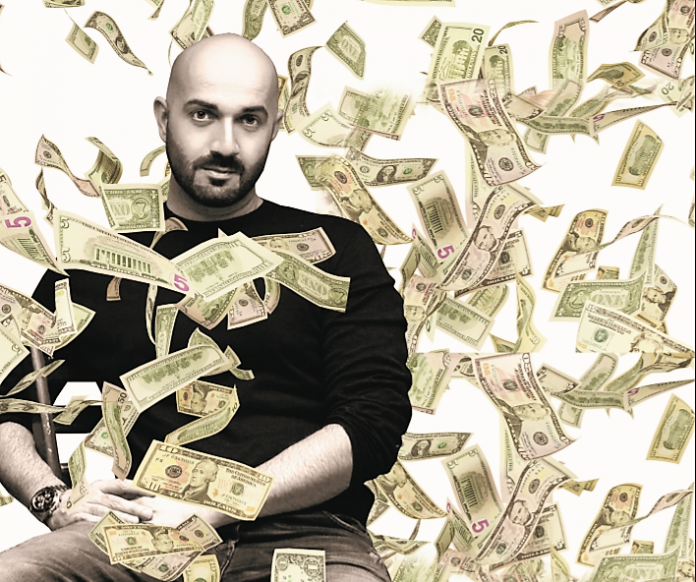
By: Farooq Tirmizi
The year 2017 is the first time the Pakistani clothing market hit Rs1 trillion in consumer spending (according to an analysis conducted by Profit based on data from the Household Integrated Economic Surveys, published by the Pakistan Bureau of Statistics). It is also the year the biggest brand in the industry – Khaadi – learnt about both the benefits and the costs of being the market leader, with a very public labour dispute and a string of negative stories published about it in the print media.
In the nearly two decades it has existed, Khaadi has gone from being a small store on the corner of a narrow street in Karachi’s Zamzama commercial area to become the industry-defining brand in Pakistan’s retail fashion sector. On the way, it has created, expanded, and conquered market that was virtually nonexistent prior to Khaadi’s launch in December 1999. Yet even as it stands as the clear champion of a rapidly growing market, Khaadi’s future has never been more precarious. In the next year or two, the actions of Khaadi’s management, particularly founder and CEO Shamoon Sultan, will determine whether it becomes a true national (and possibly global) corporate icon, or whether it will wither and fade away into obscurity.
16. What happened at Habib Bank in New York?
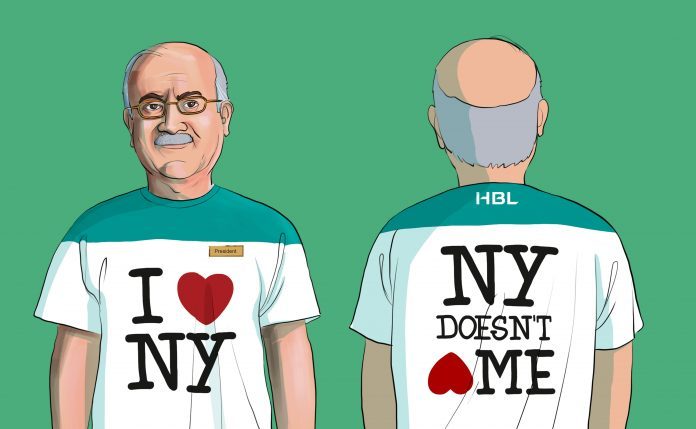
By: Farooq Baloch
The Grand Central Terminal in New York is, by some measures, the largest train station in the world, covering 48 acres in the heart of midtown Manhattan, with 44 platforms serving 56 tracks – more than any other train station on the planet. Its main concourse is one of the most filmed locations in television and movies. Small wonder, then, that nearly 22 million tourists visit it each year.
As you leave the station from its southwest exit, you will find yourself across the street from (by New York standards at least) a nondescript building called One Grand Central Place, a 53-storey structure located on East 42nd Street. It is in this building, on the fifth floor to be precise, where the New York branch of Habib Bank Ltd (HBL), the largest in Pakistan, is located.
It is in this anonymous office, on an unremarkable floor of an unremarkable building in Manhattan, almost 11,671 kilometers from Habib Bank Plaza in Karachi, that is located the branch office the shady financial dealings of which resulted in Habib Bank becoming the first bank in history to be practically ousted from the United States by the New York State Department of Financial Services (DFS)
15. Jazz going in for the kill

By: Farooq Baloch
It is 6:30 on a Sunday (August 20) evening, a roadside vendor, using open cry method, lures half a dozen men to his shop – a small wooden table and chair under a patio umbrella branded as Jazz (formerly Mobilink). He then offers them mobile subscriber identity module (SIM) cards for free.
“700 minutes to Jazz and Warid networks, 700 text messages and 700 MBs of Internet [data] for a week,” the vendor says responding to one of the customers inquiring about the offer. “With this, you also get Rs30 credit balance,” he tells another and invites more people to his shop, which is located off Korangi Crossing bus stop, one of the busiest and most populated areas in the city – similar shops have been running this promotion all over the city.
About 1500 kilometers north, the company’s leadership in the federal capital has joined hands, among others, with Qmobile and Haier for selling entry level smartphones with a branding of Jazz, a fully-owned subsidiary of Global Telecom Holding S.A.E. (formerly Orascom Telecom), which is 57.7 percent owned by Netherlands’ Veon (formerly VimpelCom).
14. 50 reasons to keep your faith in Pakistan
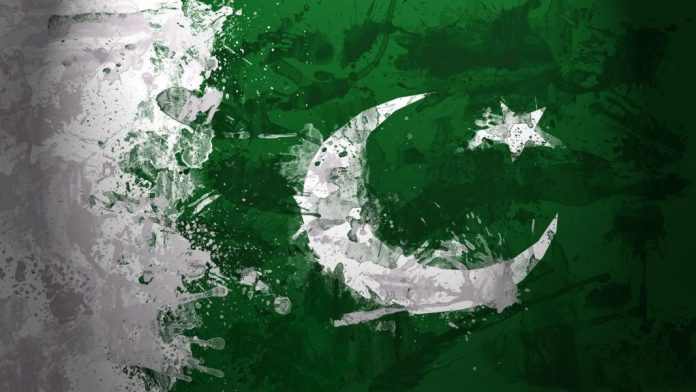
By: Team Profit
Though it is a moot point what our political, socio-economic conditions should ideally have been today, had the road not been uphill all the way thanks to needless debilitating detours, self-inflicted wounds and deeply-felt absence of political legerdemain, the country has still covered a vast distance in the face of myriad obstacles and overwhelming odds, and even a degree of achievement in some spheres, though a lot still remains to be done, especially in the social welfare and poverty elimination areas. Starting from scratch, lacking basic infrastructure and skilled human resources, we still have come a long way from the humble and ‘moth eaten’ beginnings into which we were suddenly thrust as a newborn nation.
13. What is Malik Riaz up to now?
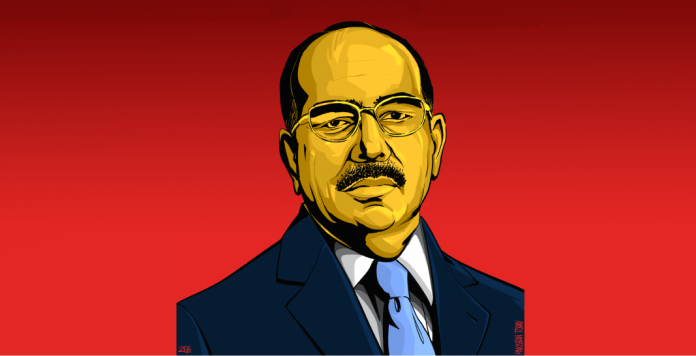
By Farooq Tirmizi
On the surface, it is a transaction that makes absolutely no sense: why on earth is Bahria Town, Pakistan’s largest private sector real estate developer, buying the unfortunately named and even more unfortunately managed Escorts Investment Bank? Buying a commercial bank to start offering financing to its buyers would make sense, but an investment bank? This acquisition cannot also be about mortgages, can it? Yes, ladies and gentlemen, it can. It absolutely can. Occam’s Razor: the simplest explanation is the one most likely to be correct.
To understand why this acquisition is taking place – and why any observer of Pakistan’s economy, and specifically its financial service sector should care about it – one first needs to understand Bahria Town’s history, its business model, and its place within the larger context of Pakistan’s real estate development sector.
12. A major cyber-attack to soon hit Pakistani Banks

By: Farooq Baloch & Syeda Masooma
“Pakistan’s first Unicorn [a billion-dollar startup] will be a fintech, which will provide a platform play as opposed to a single app,” Planet N Group of Companies’ Founder and Coach Nadeem Hussain said at Digital Banking and Mobile Payments Summit 2017, a gathering of who is who in the country’s banks, fintechs and telcos.
The financial clairvoyant didn’t stop there. “I see a major cyberattack in our digital world in the next three years. It’s at that time our [banking] industry will wake up to see the significance of what cyber security is,” he said.
Considered to be a pioneer of mobile banking, Hussain also predicted that Pakistani commercial banks would not come up with anything of significance in the digital space and their customers would force them to open up their systems to APIs [application programing interface] of fintechs. He followed up with one more prediction: these banks will end up buying fintechs as opposed to creating them.
When it comes to digital banking, Hussain has a knack for seeing the future well in advance. But, are his predictions just plain obvious or alternatively more like a shot in the dark? To find out the rationale behind his predictions, Profit caught up with him later and expanded the discussion further.
11. How political power attracts undue money
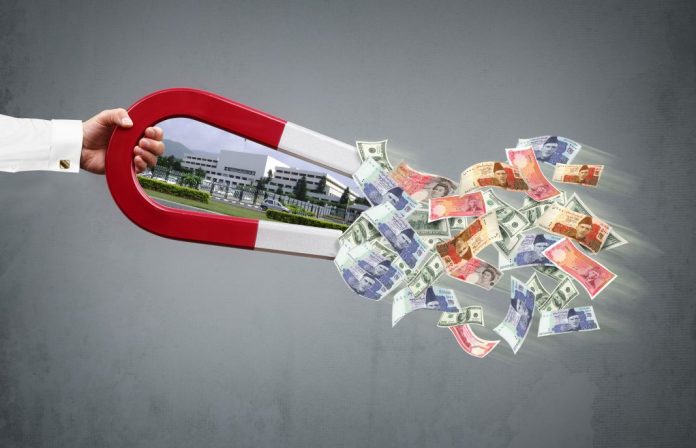
By: Farooq Tirmizi
The final report of the Joint Investigation Team (JIT) into Prime Minister Nawaz Sharif and his family’s foreign assets (the “Panama Case”) is the ultimate Rorschach test of Pakistani politics. The PML-N supporters see a conspiracy to destroy their party. The PTI supporters see a chance to clean up national politics. The PPP supporters are wary of the influence of the anti-democratic element of the establishment in the JIT hearings, even if they are not directly sympathetic to the PM. And we at Profit, financial news aficionados that we are, see a chance to answer a question that has burning in our minds: how rich is the Sharif family and how did they get there?
Most elements of the JIT report have been already picked apart from the legal and political angles. The economic angle, however, has largely remained unanalyzed. We believe this is a pity: the JIT report is fundamentally an examination of a family business’ assets and finances. It is also a unique opportunity for the people of Pakistan to understand how the wealthy but un-corporatized elite of Pakistan actually manages their businesses. And much more interestingly, what is the exact mechanism through which political power or connections can be translated into financial wealth?
Our analysis digs into these and other relevant questions with respect to the nexus between power and money as it relates to the Sharif family. We would like to add the caveat that our analysis relies entirely on the data presented in the final JIT report. We have not independently examined financials from the Sharif family businesses or other related entities.
10. Beards in business

By: Babar Nizami, Syeda Masooma, Aisha Arshad & Farooq Baloch
Atif Karamat’s Naafey employs about 15 people and they have several high-value clients. But this GIK-qualified engineer, who has an MSc from the US, hasn’t started just another management consultancy. He is servicing a small but ever growing niche of religious businessmen who need muftis to not only tell them which aspects of their outfits are un-Islamic but also to suggest (or even devise) Sharia-compliant alternatives as well.
With more and more businessmen seeking out business practices that are truly in line with their religious beliefs, demand for Naafey is only set to grow.
If I were to ask you to picture a Sharia-compliant business, chances are that you would immediately think of Islamic financial products that circumvent interest. Actually, there is much more to Sharia-compliance than the proscription of interest. Sure, you might say; that no one should be dealt with unfairly and that the company should be moral in its dealings? Well, yes, but those are considerations for good people everywhere, whether they are formally religious or not. Formal Sharia-compliance goes beyond the simple rubric of do-the-right-thing. It ends up in areas that one hadn’t really thought of. For instance, for businesses involved in some form of arbitrage, the muftis have decreed that a company cannot sell products that it does not yet own.
9. S*th- The four letter S-word in corporate Pakistan
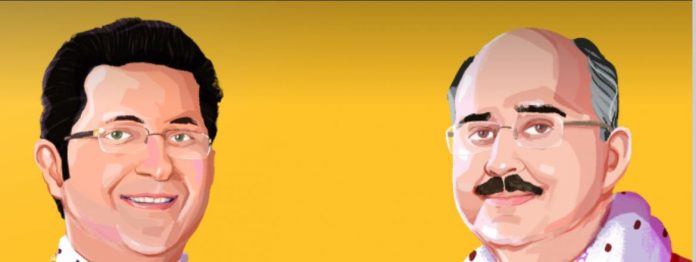
By: Babar Nizami, Farooq Baloch & Farooq Tirmizi
We would like to state at the outset that we do not condone the worst attributes of seth culture in companies. Treating employees like chattel. Ignoring human capital investment. Paying low salaries. Not paying salaries on time. There is a good reason working at a seth company is considered embarrassing: it is what a middle-class professional must do when they have no other choice. Seth companies are probably why a large proportion of Pakistani expatriates left the country in the first place.
With that said, the questions of what exactly counts as seth culture, how it differs from a professional corporate culture, and whether it can have positive economic value, have gained salience in recent months as both Packages Ltd and Engro Corporation – long seen as bastions of professionalism in a sea of sethia companies – appear to be taking a U-turn.
Literally translated, a seth company simply refers to a family business. But in the phrase’s use in the Pakistani business vernacular of a mix of Urdu and English, it can mean the very worst of what a family business can look like and is most frequently used as a pejorative
But how justified is the pejorative? And why does it matter that Packages and Engro are drifting in that direction. The answer, as always, lies in history.
8. Business vs Ethics: Color of Corruption
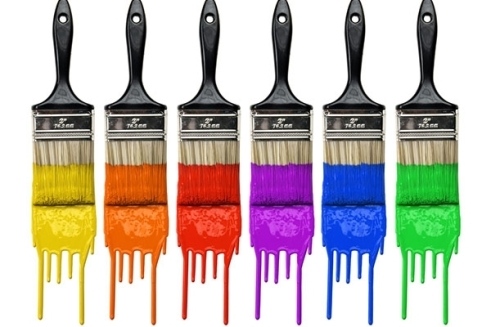
By: Babar Nizami & Syeda Masooma
This is the story of dodgy payments and shady business practices involving some of the largest, most powerful companies in Pakistan. At stake is the prize of becoming the dominant brand of paint in a country on the verge of a boom in construction activity. These companies will stop at nothing, pay whatever they have to, in order to win that prize.
The recipient of those dicey payments? A high-ranking government official? An elected politician? A wealthy businessman? A high court judge? Nope. The recipient is the daily wage labourer, barely earning more than minimum wage, whom you might hire to come and paint your house.
“Behind every great fortune lies a great crime.” These words, originally written by Honoré de Balzac, and quoted by Mario Puzo in The Godfather and Supreme Court Justice Asif Saeed Khosa in a dissenting opinion on the Panama Papers case, reflect a common perception that wealth generation requires financial malfeasance. It also creates the mistaken impression that only the wealthy are involved in questionable financial transactions.
This story will demonstrate, however, that corruption is not a matter of wealth and power, but incentives. Given a strong enough incentive to engage in unethical behaviour, a distressingly large number of people will do so, regardless of their level of wealth or power. And to be the recipient of an illicit payment, one need not be wealthy or powerful, but merely in a position to offer an undue advantage to an entity looking for it.
7. Hoooold….Hoooooooold….. Now!!
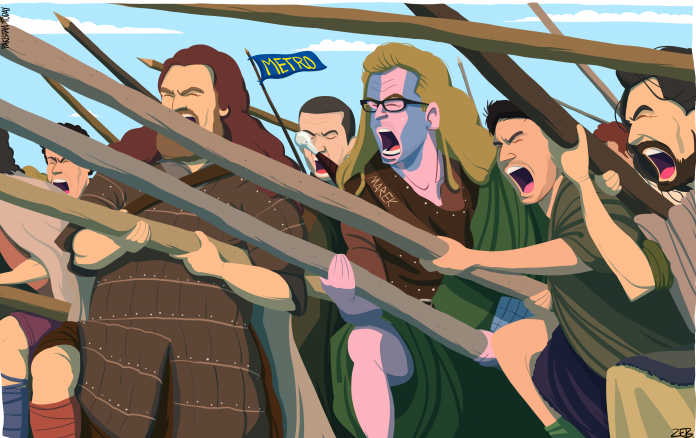
By: Babar Nizami & Syeda Masooma
Chatting over tea and Baklava pastry in an unadorned small office on the first floor of a Metro Cash & Carry store in Lahore, Managing Director Marek Minkiewicz recalls how he discovered the original recipe of the middle-eastern delight, which later became a regular on Metro Café’s menu.
However, that’s, perhaps, the smallest of changes he has made to the business since he joined as its chief one-and-a-half years ago. Marek has taken the international self-service wholesaler from barely breaking even two years ago to double-digit growth in its profits this year. And he has barely begun – the new chief of MCC has far bigger plans: he now wants to disrupt the market by launching a country-wide network of small convenience stores under a franchise model and even better enter full throttle into the burgeoning e-commerce industry along the lines of Alibaba from China.
But bringing MCC to this level within a span of one year wasn’t smooth sailing – the man fired almost the entire top management, half of the mid-tier managers and fought many other challenges in his attempt to restructure a business, which remained almost stagnant for five years before his arrival with no new store openings.
6. PTCL calls the doc
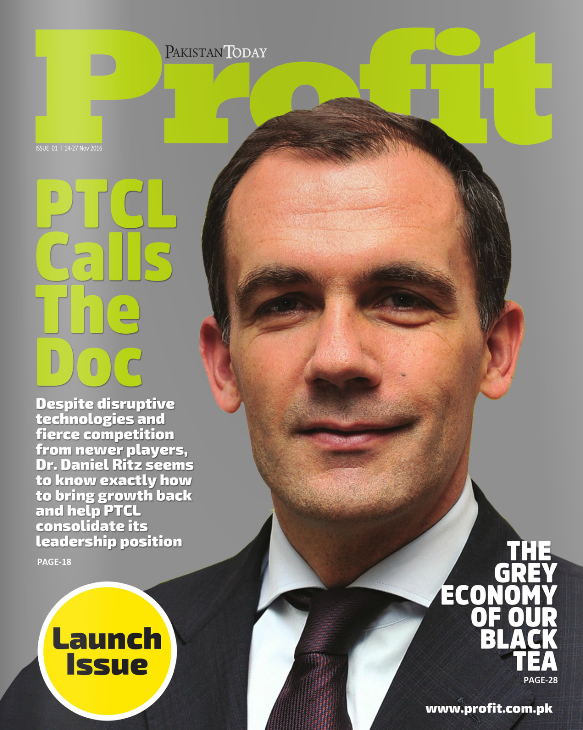
By: Farooq Baloch
When he took to the podium at the Management Association of Pakistan’s 18th Convention held in Karachi’s Mövenpick Hotel recently, Dr. Daniel Ritz, President and Chief Executive Officer of Pakistan Telecommunication Company Limited was clear about the mistakes PTCL made and the direction his company had to take. Drawing parallels between PTCL and Pakistan Cricket Team, the CEO said, “Both are number one, but not meeting the country’s expectations.” There have been ‘good days and bad days’ as both the country’s cricket team and PTCL were ‘inconsistent’ in their performance, Dr. Ritz said as he swiped through slides, visuals of fans reacting to Pakistan’s wins and losses in international cricket contests.
Since his presentation, Pakistan’s cricket team has come back in the game, showing a great deal of consistency in its performance. However, PTCL may take longer to do the same.
“Let me be very clear, it [restructuring PTCL] is a long journey. There are no easy fixes, no shortcuts to revamping such a large organization,” Dr. Ritz told a packed audience in what was his first public talk on the topic since taking office in March, 2016 – he was referring to the company’s gigantic but decaying infrastructure, its large employee base, mostly untrained, and its ‘inconsistency’ in providing quality services resulting in a plethora of customer complaints.
5. Why go to double shahs?
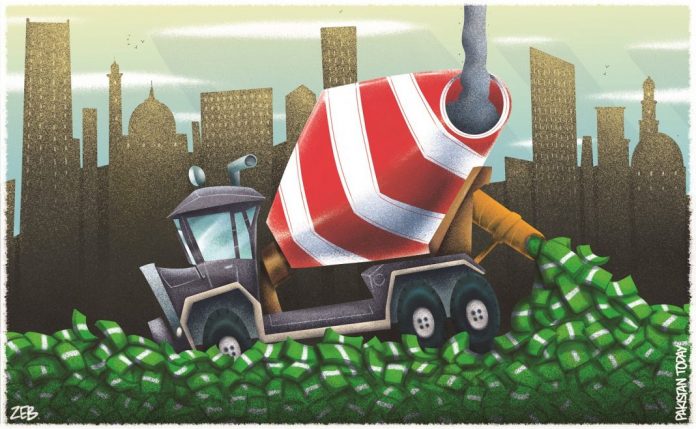
By: Farooq Baloch & Nida Jaffery
Almost a decade ago a conman by the name of Sibtul Hasan Shah ran an infamous Ponzi scheme offering people to double their money, all in a matter of 70 days. Once a schoolteacher, Shah earned notoriety for his fraudulent scheme only to be jailed almost two years later leaving his investors in a complete state of emotional and financial distress.However, what if there was a way to actually double your investment and that too multiple times in a year without being scammed?
Well, ever heard of cement stocks?. It so appears that cement stocks, in their entirety, remained the most robust among all investable sectors on the bourse during the past six years. Explained simply, had you invested Rs 10 lacs in the stocks of Kohat Cement only six years ago, by now you would have made Rs 4 crores, earning almost Rs 6 lacs every month during the period. That translates into an extraordinary return on investment (ROI) of 60% per month.
Yes, you read that right: 60% per month! In other words, the original Rs 10 lacs would have purchased you 153,846 shares of Kohat Cement at Rs 6.5 per share, its price on 1st January, 2011, which has appreciated by a whopping 3,854% to Rs 257 per share at the end of September this year.On top of this staggering price appreciation, you would have earned another Rs 29 lacs as dividend income, taking the combined return for the period to over Rs 4 crores! Kohat, perhaps, is a good example from the cement sector, but it is certainly not the only one that explains why Pakistan’s stock market has been outperforming its regional counterparts for the past few years.
“Cement stocks are a telltale of why Pakistan is Asia’s top performer,” Pakistan Stock Exchange (PSX)’s Managing Director Nadeem Naqvi told Profit in a recent interview — and he had a reason to say this The 21 cement companies, including allied businesses, listed on the PSX staged a sector-wide gain of almost 1,000%, or 936% to be precise, since December 30, 2010, according to the data compiled on September 19, 2016 by Insight Securities, our research partner for this report.
4. Too little too late
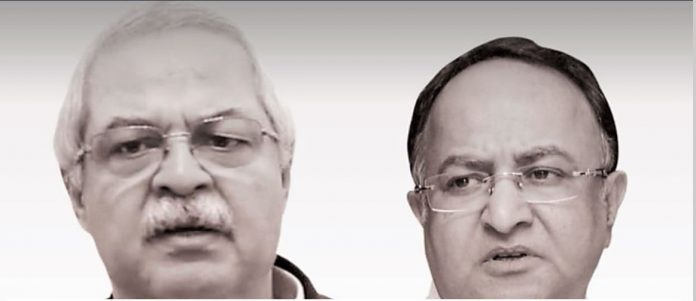
By: Abbas Naqvi
Classified ads were providing a fairly substantial and a steadily growing revenue stream to Pakistan’s two leading newspapers, Jang and Dawn. Other newspaper groups, like Express and Nawai-i-Waqt, much to their dismay had miserably failed to make any dent in this lucrative market, which had essentially become a ‘Jang-Dawn’ exclusive territory. More importantly due to the very nature of classified ads, this segment was also unthreatened by the otherwise burgeoning players in the satellite television industry. Jang in Urdu and Dawn in English, were so to speak, the undefeated, undisputed heavyweight champions of the Rs 300 crores classified ad market.
However,a change was underway with the launch of Pakwheels.com in 2003 – an automobile classified portal, followed by the entry of the classified job portal, Rozee.pk. The two newspapers groups didn’t realize the potential threat posed by these tech-start ups so much so, that they even supported their own demise by sponsoring job fairs conducted by their soon to be competitor, Rozee.pk.
3. Pakistan’s next economic crisis
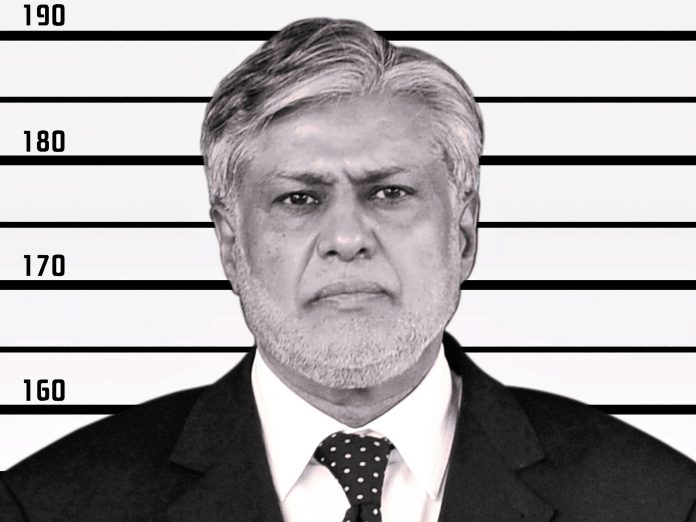
By: Farooq Tirmizi & Syeda Masooma
Suppose for a minute that you are a globally focused investment manager based in London or New York. If you have been paying attention to the signs, it is probably very hard for you not to get excited about Pakistan right now.
You get up in the morning and read an article in The Wall Street Journal touting declining poverty and the rise of Pakistan’s middle class. You switch to Barron’s and there is another piece raving about the stellar performance of the Pakistan Stock Exchange. Opinion writers in Bloomberg are talking about Pakistan as a “pleasant surprise”. Forbes is favourably comparing Pakistan to India, which may cause some discomfort to you, since you probably have far more investments in India than Pakistan, if you have any in Pakistan at all.
So you are intrigued but of course, you decide to do a little more research. After all, financial journalists are always looking for the next shiny object to draw the attention of their readers. You need to do your own diligence. That is why you make so much more money than they do.
You log on to your Bloomberg terminal and the very first thing you check for is where the country’s sovereign credit rating is at the moment. You see that both Standard & Poor’s and Fitch have rated the government of Pakistan’s international bonds at B with a stable outlook. Moody’s is one notch lower at B3, but also with a stable outlook. That is not great, but you have invested in worse and done just fine. So you look up the sovereign bond. The 10-year bond is trading at somewhat less than the issuing interest rate of 8.25%, but still much higher than what other bonds with similar maturities and credit ratings trade at. Could this be an undervalued market?
2. Pakistan’s only powerful women in business
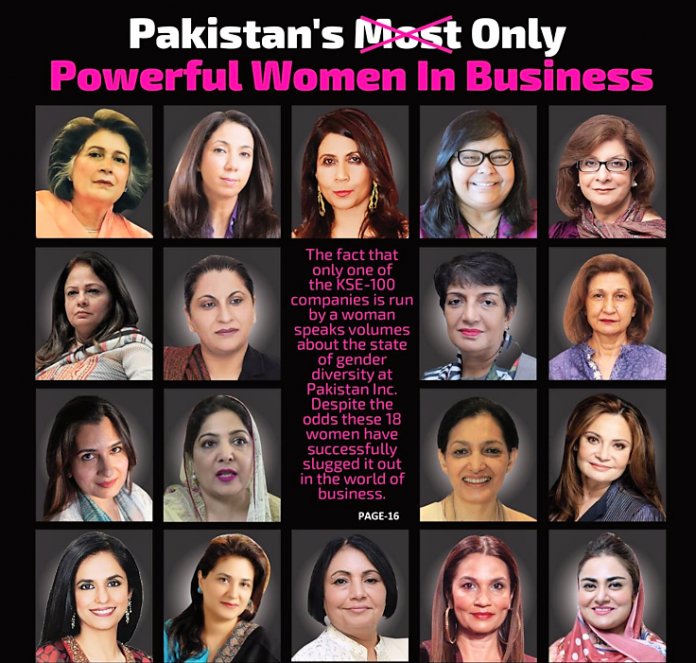
By: Aisha Arshad, Farooq Baloch & Babar Nizami
When we set out at making the first of Profit’s annual list of the most powerful businesswomen in Pakistan, we had assumed that shortlisting the list to a mere 25 would require a very strict criteria. Little did we know then that shortlisting will be the least of our concerns here. Half way through our research -on both the listed and the unlisted sector-, we had realized that coming up with even an initial list of 25 would be an arduous task. In fact in the end we had to lower our yardstick a bit to make a final list of only 18. That ladies and gentlemen, is how bad the situation is when it comes to gender diversity at the top level of our corporate sector. We had to resist the temptation to include multiple names from the development and education sector where many a women are doing a fabulous job. Same goes for the fashion and hair/beauty industry.
Another obvious option was to relax our criteria further and include the many women heading HR and Marketing departments of companies and called them “powerful”. But then that would have been unfair to the word ‘power’. You see power is the ability to shape and change organisations, careers, markets, entire industries, sometimes, the lives of an entire nation. It is the deafening silence that falls upon a meeting when someone with enough of the commodity to spare raises his or her voice to make a point. It is the raw envy an individual’s achievements provoke in people around. It is, in equal parts admiration, respect, influence, and it is more.
Definitions are important, for they delineate who we are and what we do. When we at Profit set out to identify the 25 most powerful women in Pakistani business, we started off by looking for a largely-objective quantifiable methodology that could accomplish the task. Power, unfortunately, confounds most available metrics. So, we decided to do the next best thing: define our universe and the criteria we would use to identify the most powerful women in business.
1. Bramerz-The unique story of losing satisfied customers and then fighting back
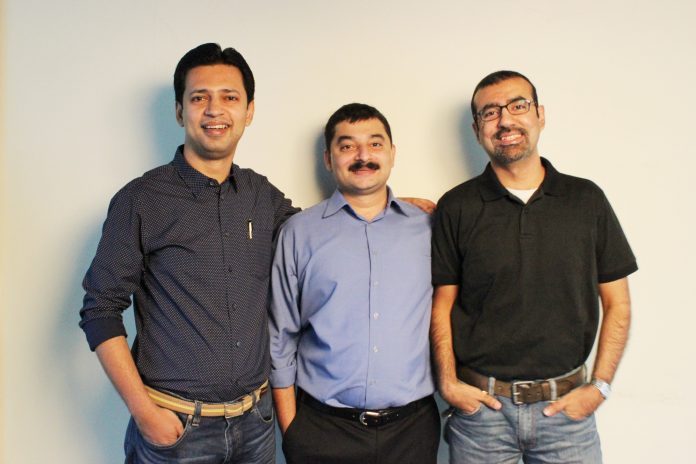
By: Nida Jaffery & Farooq Baloch
The digital ad spend of Pakistan is almost $15 to $20 million at present and it is expected to grow by at least 40 percent in 2018,” said Badar Khushnood, the Country Consultant for Twitter and one of the three Co-Founders of Bramerz, a top-notch digital marketing agency operating out of Lahore.
Bramerz has led the digital marketing scene in the country over much of the past decade. In fact, it won’t be wrong to say that growth of Bramerz is synonymous to the growth of digital media in the country.
Bramerz, which has to its credit projects like Pakistan Super League, and Uber, and served multinational giants like Nestle, Unilever, Levi’s, Samsung, and PepsiCo, inspired a whole generation of digital marketing professionals and launch of many new players in the past few years.
However, times seem to have changed now and competition intensified.
With some of the large brands, especially multinational companies, willing to spend up to $3 million on digital campaigns, the relevant spend is expected to increase to 15 percent of the total media ad spend this year. Market estimates suggest it can reach up to 30 percent of the traditional ad spend by 2020.
With the industry growing at this unprecedented rate, digital marketing agencies, like Bramerz who had first movers advantage in the arena and were set to tap this growing market, are feeling the pinch as traditional advertising agencies and media buying houses eat into their market.































